|
This past weekend I facilitated my first educational design workshop (!) with inspiring participants at AERO 2017 (Alternative Educators Resource Organization), in New York. The workshop centred around a design framework I've been fleshing out since 2015, called the Education Model Canvas (more in this post). In short, the EduModel Canvas is intended to help educators:
I didn't know what to expect as I moved from presenting the tool to people actually using it. As it turned out, I had an enthusiastic group of 18 participants from 5 countries, who set the tone by sharing their work and interests. Areas of expertise included: working with young refugees in Lebanon, designing empowering programs for black youth in D.C., mental health programming for youth in Bermuda, environmental sustainability in Colombia, a community resource centre for homeschoolers in L.A., play-based learning for children in Singapore, and self-directed learning across schools in the US. (I know, WOW!) Here was some of the feedback on what participants found useful: "Thinking through key components of my model; having time to discuss this with others." For the third year in a row for me, the AERO conference has been a great platform to connect and ideate with unconventional educators, parents, leaders and learners. The conference attracts participants who share in a vision of more relevant educational programs, who are working to create critical change. I am grateful to Jerry Mintz, Wylie Kuhn, Peter Berg, and others who make these conferences possible, and to all the collaborators who continue to support it. Excited to keep building and sharing as this work grows!
0 Comments
What if students had more autonomy in designing their education after high school? Would we have more students engaging in problems and questions they cared about, and in turn finding more purpose in their careers?? I’ve been dwelling on these questions for a while now, ever since I started teaching in higher ed in 2011. Part of the solution: Individualized Major Programs. These programs vary broadly in their implementation, philosophies, and student profiles, but do share a sense of catering the undergrad and college experience to the needs and interests of individual students. Tyler Barley for example, was able to explore his deep interest in African American studies, through the combined lenses of history, anthropology, and political science at RiT’s School of Individualized Study (see Tyler's story here). Through a Custom Design major program at Philadelphia’s Drexel University, Collin Cavote went from living off the grid to designing Biome, a company that makes nature more accessible in urban settings. The company designs “breathing walls” — natural art installations that also purify the air (read more about Collin’s story here). Hearing these stories, and meeting several other students, faculty, and administrators at the Individualized Major Programs conference in Rochester this Spring inspired me to encourage more of this individualized thinking and engaged inquiry into my own teaching practice and course design work. It also made me realize how our connection to broader societal challenges can be considered much earlier on in our careers and lives, in uniquely tailored ways. And these programs need not be limited to liberal arts majors. Broadly speaking, these (Individualized Major) programs enable students to draw new and innovative connections across fields of knowledge, develop individual learning objectives and outcomes, synthesize cross-disciplinary research methodologies, and, generally, work against the institutional dictates of strictly disciplinary learning. Of course, these programs are not a fit for every student.
Student panelists spoke of the need for motivation in their majors, and that for an inspired degree to take shape, the “I don’t know what I want to do” mindset would not be a good fit. That said, other students spoke of how having time early on in their degrees for exploration allowed them to clarify their interests before committing to a capstone project or problem they would address in their senior years. I love the idea of bringing more individualized learning into, and outside of, every classroom, and am excited to learn more about this space!
I was recently interviewed for a sweet podcast series, supporting the Alternative Education Resource Organization (AERO)'s overall Education Revolution.
I had a wide-ranging chat with Jerry Mintz on my adventures so far; what I've seen, learned, and how there is hope for these ideas in public school systems as well. You can listen to the podcast below; hope this is insightful for some of you! Recently, I’ve been hearing about Rumie.org from mentors and students, and decided to learn more! Rumie is a Toronto-based non-profit tech startup founded by Tariq Fancy, leveraging a crowdsourcing model to provide free e-learning on small tablets for underserved communities. . Although “ed tech” has been gaining momentum in recent years, the use of tech for educational access isn’t actually so novel. Models such as One Laptop Per Child (OLPC) and Sugata Mitra’s School in the Cloud (which I’ve posted about here and here), were inspired by a similar vision ahead of the ed tech craze. However, OLPC for one, had high costs of hardware (closer to $200 per tablet) and implementation, and little by way of tangible results. But as Founder Tariq Fancy points out in this post, with technology (as with anything!), timing is everything: OLPC was a noble effort, but it was an idea before its time. In technology, timing is everything... In addressing the challenge of sourcing relevant content, Rumie's LearnCloud platform is available for educators worldwide to contribute open access K-12 resources across subject areas. I participated in a #LearnSyria webinar with Rumie a few weeks ago, which introduced the platform for us to play around in, as well as a current campaign to support learning in Syrian refugee camps through Rumie tablets. Just as dispersed volunteers online created Wikipedia, the world’s largest encyclopedia... the LearnCloud’s fast-growing volunteer community of teachers, subject area experts, and skilled practitioners is building the world’s largest repository of free learning content online. - Tariq Fancy At a time when we face crises of displacement and resettlement, and with continued issues of educational access, the Rumie model does feel promising to address part of the opportunity gap.
In my next post, I look forward to sharing a Q&A with Deanna Del Vecchio, Head of Partnerships at Rumie. Follow Rumie on Twitter: @RumieInitiative Check out their website: rumie.org
Recently the state and future of public education have been one hot topic in North America, with the dramatic shift in US administration.
Now feels like a fitting time to share the perspective of an engaged voice in US Public Schools, Natalie Bradley Overton. Natalie has built her career in education, currently working with Blue Engine, an organization dedicated to preparing students in low-income areas for college. Blue Engine works by involving BETAs (Blue Engine Teaching Assistants) in classrooms with full-time teachers, increasing the direct instruction students receive. As the current Director of Diversity, Equity and Inclusivity for the organization, Natalie plays an important role in broadening and deepening the work of Blue Engine and it's educators. Last spring, I spent a day in Washington Heights with Natalie, met a few BETAs and visited classrooms in sessions at Blue Engine's flagship partner school, WHEELS (Washington Heights Expeditionary Learning School). It was a special visit and a special community. I'm excited to share this video, the next in the "Educators Who Inspire" series, especially at this unprecedented turning point. As Natalie explains, "We must be ready to do the work". (Fun Fact: President Obama gave a nod to Blue Engine in a 2014 speech, which you can see here.)
As I come to the end of a year of exploration and self-directed research, I feel overwhelmed yet hopeful, thanks to all the ideas I have now seen in practice. These ideas include: individualized higher education; outdoor education; systems and critical thinking; arts as empowerment; redefining "success"; purposeful technology use; marginalized youth as community leaders; and enabling learners to direct more of their learning.
In trying to combine my research 'highlights' with my own vision for future learning, I began building a framework to facilitate the design of emerging programs. Inspired by the Business Model Canvas, I call it the "EduModels Canvas", a strategy tool to help us think about both the big picture and the details involved in redesigning learning programs.
Along with inspiring a new, more systematic approach to designing programs, my other hope is that we are able to improve existing school systems, using some of the principles I observed this past year.
These principles, as well as a quick explanation of the "EduModels Canvas", are outlined in this final section of my talk from AERO 2016: What Next? (Part 5 of 5) from edumodels on Vimeo.
Thanks for your continued interest and support throughout this project. Special thanks to all of the educational innovators who graciously shared their lives, work and visions with me throughout this past year - you have inspired me to continue my own work.
I look forward to continuing to share the Educators Who Inspire video series, and to collaborating with some of you in spaces of innovation and educational access!
The final lesson I learned over the past year of school visits and interviews focused on the unique set of challenges and strengths each model faced. Being clear on these strengths and challenges, is critical to improving programs.
Transparency around the uniqueness of each model also allows us to understand differing priorities, while acknowledging common factors that do exist in innovative alternatives (which I'll get to in my post next week!)
Here is this quick lesson shared at the AERO conference:
From the beautiful Green School in Bali, to the inspiring Dharavi Art Room in Bombay, another recurring point of learning for me was around access. Educational access isn't a new concern in education, yet I haven't found it to be a priority in the design of many innovative and progressive models.
(Dharavi Art Room and the School in the Cloud/SOLE Colombia are great examples of programs designed to increase access, as is the sliding scale for tuition that some independent alternatives are implementing.)
Here is the "lesson" shared at AERO 2016 on this issue. Look forward to sharing the final two parts to this talk next week!
Over the past year, one theme that kept surfacing for me across visits was the importance of contextual factors in designing learning experiences and determining priorities.
Although the importance of context to inform our understanding may seem obvious with global comparisons (ie. a school in rural Uganda compared to a school in urban Toronto faces clearly different circumstances), contextual factors can play an important role for schools even within the same city. Two distinct schools in New York helped me to demonstrate this first lesson: Context Matters.
Here is a brief explanation shared at AERO2016:
I look forward to sharing lesson #2 next week!
Over the past year, I have been fortunate to dedicate much of my time to visiting innovative programs in several countries, collecting stories as Himanshu at Dharavi Art Room aptly put it. My intention was to engage with courageous trailblazers; to showcase their approaches; and to raise awareness of key educational challenges that are being addressed.
Recently, I summarized some of the lessons learned for a presentation at the AERO 2016 conference in Portland, Oregon. Over the next couple of weeks, I am pleased to share these with you, beginning with the Intro below.
I am grateful to everyone who has welcomed me and my mochila full of interview gear so far. To all my gracious hosts, educators, students and communities: THANK YOU for being willing to share your struggles, your hopes, and your dreams for education. You helped to shape a rich year of learning and creating for me. I look forward to sharing the "lessons" from my talk, and more Educators Who Inspire as the journey (and the editing!) continue. |
Categories
All
AuthorA passionate educator.. on a quest for a schooling model to love! Archives
August 2017
|
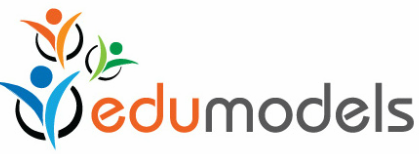
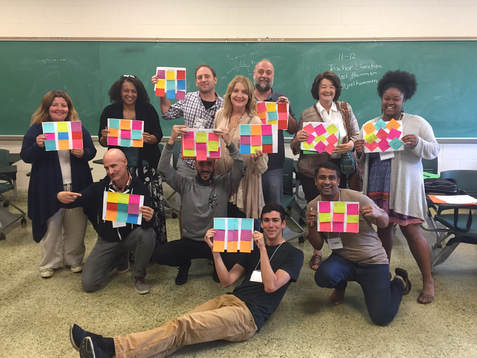
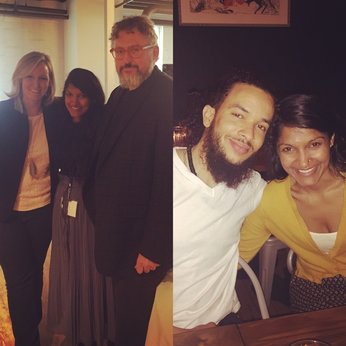
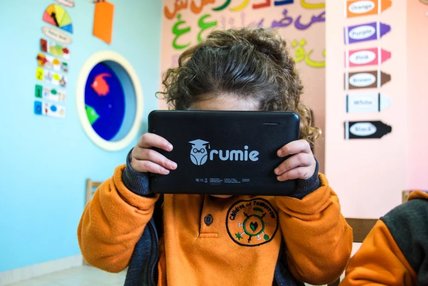
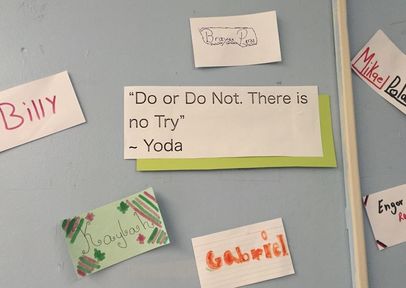


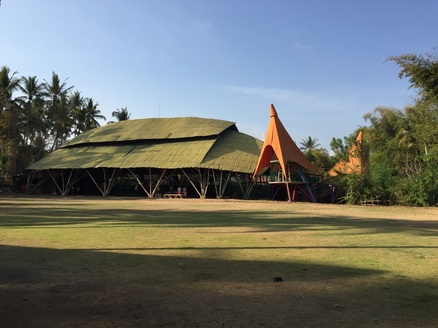
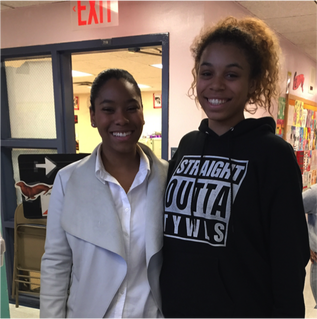
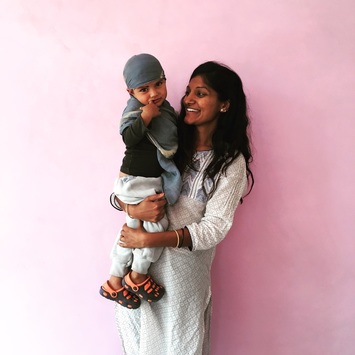
 RSS Feed
RSS Feed
